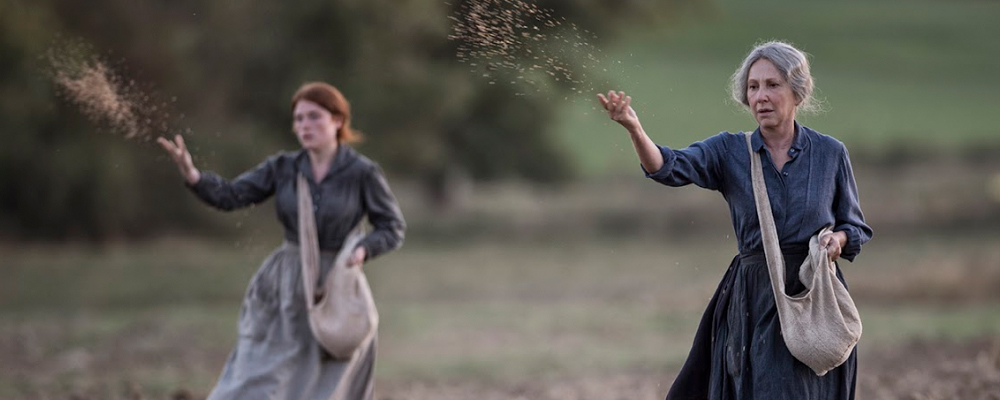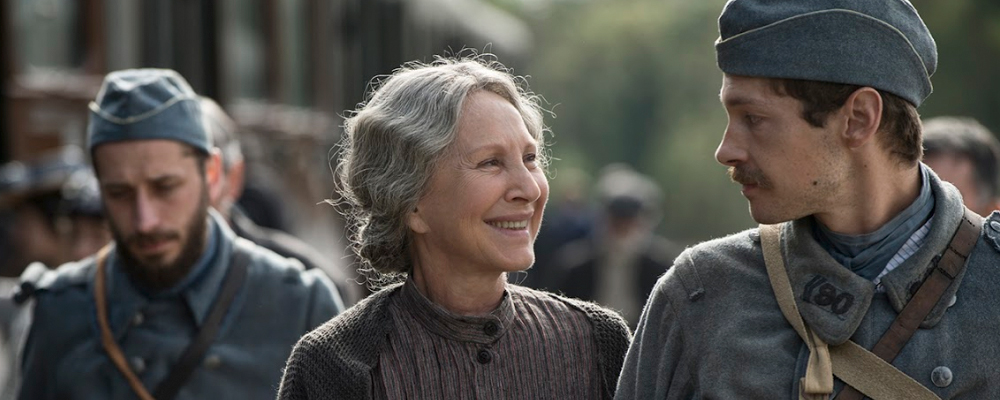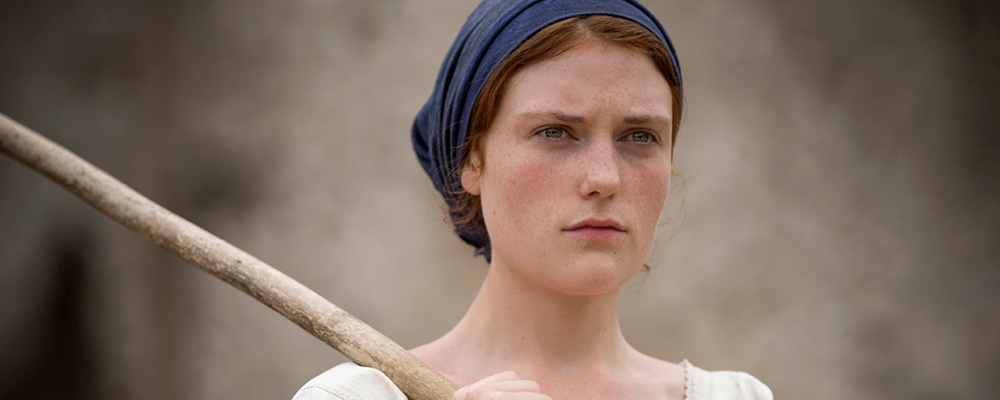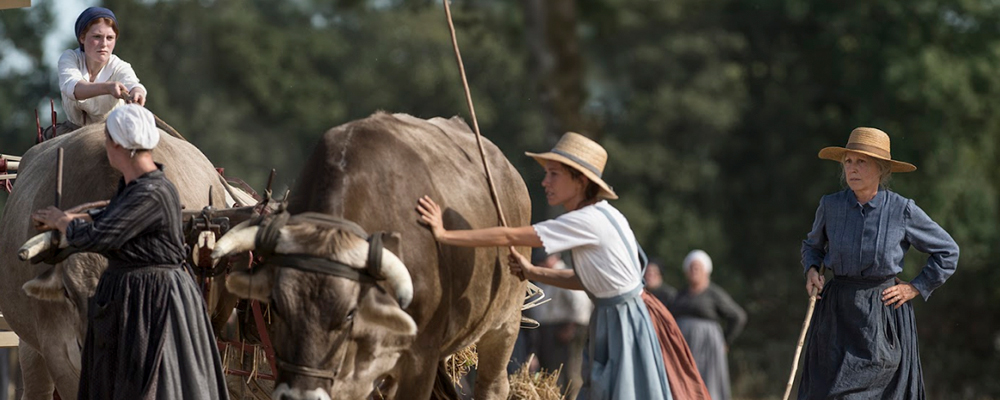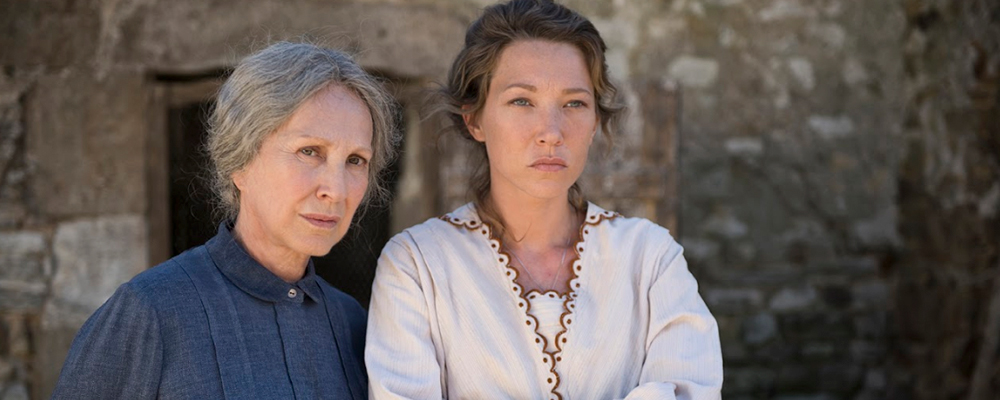‘The Guardians’ Chronicles a Rural Family’s Life In Wartime France
Alci Rengifo
“The Guardians” opens by quietly panning across the trenches of World War I, as men die amid mud and cold mist. Then it transports us to rural France, where life continues according to a specific, patient rhythm far away from the fire and fury. Directed by Xavier Beauvois, this film feels like a complete journey back in time. It captures every detail of a society during a specific moment in history, enveloping the viewer in a place instead of just spinning a narrative. The story remains rich however. Lives become shaken by distant events, and emotions quietly develop and boil in surroundings so close-knit, they are always intimate.
It is 1915. Hortense Sandrail (Nathalie Baye) is the matriarch of a farming family where the men have been drafted to fight in the distant front. Left to care for the land is Hortense and her daughter Solange (Laura Smet), whose husband is off fighting. Hortense’s sons Georges (Cyril Descours) and Constant (Nicolas Giraud) are allowed to visit home only a few times a year. Hortense’s husband Henri (Gilbert Bonneau) is also around, but he is too old to work the fields. Hortense decides to take on help and hires a farmhand named Francine (Iris Bry in her screen debut). Francine is an orphan who is used to hard labor and taking care of herself, but with the Sandrails she begins to like the idea of a stable home life. When Georges returns on leave he immediately falls for Francine and she for him. But the war inevitably takes its tolls on the family. As Hortense’s fortunes rise the neighbors also start getting jealous. Gossip starts spreading like a silent plague. When American soldiers arrive they only help exasperate the problem with their loose attitude.
There is a refreshingly classical style to the “The Guardians.” It is based on a 1924 novel by Ernest Pérochon, written scarcely ten years after World War I had begun. Like the book, the film is a chronicle of a culture and its environment. Beauvois allows the camera to spend time with the characters as they carry out the day’s work and feel the passage of time. This is an isolated world, in an era before television, radio or high-speed news. Traces of medieval society are everywhere on the screen and at night gas lamps provide lighting akin to candles. The narrative is engaging but never rushed, the editing never attempts to speed up the story’s developments. A human poetry is captured in the way Beauvois will film hands gracing stones, farmers milking cows at dawn and eyes lost in thought. Like other films such as Carlos Reygadas’s “Soft Light,” this is a work that tries to vividly conjure how these characters live and breathe. This all gives the story an even wider scope, but a subtext here is that this is a generation living through a changing world, even if great events seem so far away. Soon technological advancements and political upheaval will sweep away the society of this movie. Hints appear when Solange and Hortense discuss the need for getting a tractor. When they finally acquire one, the moment when Solange rides the machine for the first time it is obvious nothing will ever be the same.
The human dimensions of the story flow out of the environment. There is a unique, feminist angle to the story in which out of sheer necessity the women become keepers of the land and local economy. The men may give orders and act as if they know what’s best upon returning from battle, but Hortense and the other women are the ones dealing with the actual preservation of their livelihood. It is as if the war has interrupted a specific, social structure. Even the old ways of courting a potential wife are disrupted. Georges loves Francine, but the war continuously calls him back, and if anyone feels like smearing her reputation while he is gone it can ruin everything. Even when he returns, Georges is haunted at night by nightmares from the trenches. But even the war cannot make one immune to jealousy. Solange may feel attracted to one of the Americans, but when confronted by Hortense she expresses her feelings with a rugged, honest eloquence. There is no need for soap opera in this setting. The female characters are heroic in a low-key sort of way. They are not made to give grandiose speeches or proclamations, they continue working and taking care of the land because there is no choice.
Nathalie Baye, one of the great modern French actresses, is a ruggedly elegant presence in this film. She has a quiet strength and firmness of character that evokes tradition but independence as well. Her approach is to play the role as a personality with experience, who even when making a mistake, knows to keep her composure. Iris Bry, in her feature debut, is full of innocent charm, yet by the end credits she shows us a character who has grown through her experiences.
“The Guardians” is a period drama that offers an experience of eloquent pacing with a focus on performances. Like the literary tradition it is culled from, it actually takes the time to create a time and place, giving us characters who feel like actual people living and being affected by time. It is also about how the ripples of great events affect even the most distant, enclosed worlds.
“The Guardians” opens May 4 in New York and May 11 in Los Angeles.

